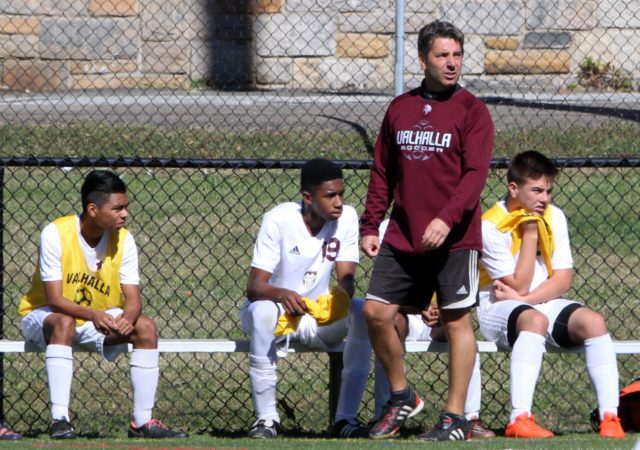
If you want a better relationship with the players, be curious
We often associate curiosity with children, but curiosity can be an upgrade that enables coaches to establish a better relationship with players. To get closer to them, to hear what they are thinking. Players usually distance themselves from coaches, and they communicate in a passive way. Curiosity is an excellent way to open the players and get them into a conversation.
What is the most common obstacle related to interacting with players? Lack of questions!
The most common mistake of coaches when talking to players is that they are constantly telling players what they should do. When you talk to players in that way and do not ask questions, you may have an exchange, but that is not a deeper conversation, right? Much more can be achieved by using the question and answer technique. For example, if you ask a question like, “Who can tell me why it’s good to put pressure on the stopper?”, you will achieve two goals. First, you will get the right technical diagnosis; and secondly, by involving the player in the debate, you will encourage them to develop their power of observation and critical analysis. Motivating players to appreciate and develop their knowledge of the game is surely the foundation of a good training, and using the technique of questions and answers reinforces this process.
So, when you want to hear what your players think, be curious, ask them a question and get an answer. The question always opens up an interaction.
Asking questions is important, but keep in mind that a whole series of questions in a row could make the players feel as if they are at a police hearing. It is up to you to ask a question that will encourage the player to talk, and then to listen carefully to the answer. It is very important to actively listen to the answer and to show the player that you care about his message and about him as a person.
When we are curious, we show that we are more interested.
Curiosity triggers interest. I remember when I worked at the club as marketing director, I was curious to find out if our players were interested in going to the theater. When I got a confirmative answer, I was interested in making it happen. Once I was interested, then good things happened. My friend, famous Croatian actor Ljubomir Kerekes, provided us with the tickets for the comedy in which he played the main role. The players were delighted. And all began with a curious question.
The same dynamics will happen in your conversations when you are genuinely interested.
When we are curious, we are ready to learn.
Believe me, without curiosity, we will never learn much. My friend Damir Jagačić, who is currently manager of the Football Academy in NK Varaždin, as a young coach had shown curiosity towards sports analytics and digital tracking of players. In the meantime, this curiosity made him become a top expert in analytics and tracking players.
As you can see, when there are all four things which are already mentioned: asking questions, listening, interest, and desire to learn, all the other benefits come with it.
If you want to have more valuable conversations, be more curious.
